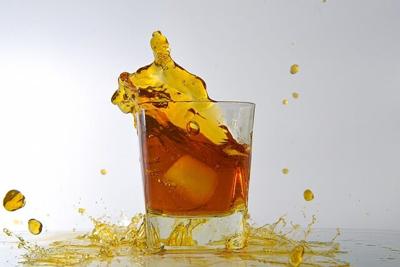
It starts off innocently enough. A glass of wine to unwind after a long day. A few drinks to take the edge off before a business dinner. A weekend social event that blurs into an after-party. For many high-functioning professionals, alcohol weaves itself seamlessly into life - until it becomes a silent threat holding everything together.
Unlike traditional narrative portrayals of alcohol dependency, this isn’t about hitting “rock bottom”. It’s about how burnout can come wearing a tailored suit. It’s about overachievers who keep things looking polished on the outside while quietly relying on alcohol to cope with stress, fatigue and the pressure of high expectations. For some, it’s about seeing the signs and seeking to regain a sense of control and clarity.
A culture of connection - or pressure?
This kind of pattern isn’t limited to a single culture. In Japan, the custom of nomikai - after-hours drinking sessions with colleagues - has long been seen as a standard element of work culture. Seen as a way to build cohesion and show commitment, it has also in recent years faced growing criticism for the toll it takes on individuals. Younger generations are increasingly pushing back against the culture, questioning whether constant social drinking should really drive workplace bonding and advancement.
The parallels with Western culture are hard to miss. Client dinners, celebratory toasts, a drink after work to blow off steam - it quickly adds up, and what it adds up to is often not pleasant. These moments of connection can become a mask for chronic stress, disconnection and avoidance, and the need for alcohol detox can be missed because the picture doesn’t look like the expected shape of problem drinking. Bowing to social expectation is, nonetheless, often how substance problems start.
Signs that there may be a problem
You don’t have to be waking up in a bus station or ending up in hospital for the issue of alcohol-related burnout to be a problem. Warning signs are often a lot subtler
Although you get enough sleep, you feel persistently tired
You feel irritable or emotionally flat after drinking
You plan downtime around when you can have a drink
At work, you’re experiencing “brain fog” and decreased focus
You’re not drinking to celebrate, but to blot out stress
These are not necessarily signs that you’re addicted, but they do represent a point at which it’s time to take stock. Just as we reassess our diets, exercise regime, and screen time, we also need to re-evaluate our drinking habits from time to time.
How to reset
Taking a step back from alcohol, even if only temporarily, can be a necessary reset. Many professionals are turning to short-term abstinence challenges, wellness retreats, or more formal support to help them reframe their relationship to alcohol. The goal isn’t shame or self-recrimination - which are more likely to drive people back to drinking - but clarity. A way to understand how we can relax, socialize and celebrate without needing to drink.
In a culture that is often focused on grabbing the next brass ring, pausing for reflection might seem terrifying. But real resilience isn’t about pushing through; it’s about knowing how to pace yourself so you can stay in the race to the end.


(0) comments
We welcome your comments
Log In
Post a comment as Guest
Keep it Clean. Please avoid obscene, vulgar, lewd, racist or sexually-oriented language.
PLEASE TURN OFF YOUR CAPS LOCK.
Don't Threaten. Threats of harming another person will not be tolerated.
Be Truthful. Don't knowingly lie about anyone or anything.
Be Nice. No racism, sexism or any sort of -ism that is degrading to another person.
Be Proactive. Use the 'Report' link on each comment to let us know of abusive posts.
Share with Us. We'd love to hear eyewitness accounts, the history behind an article.